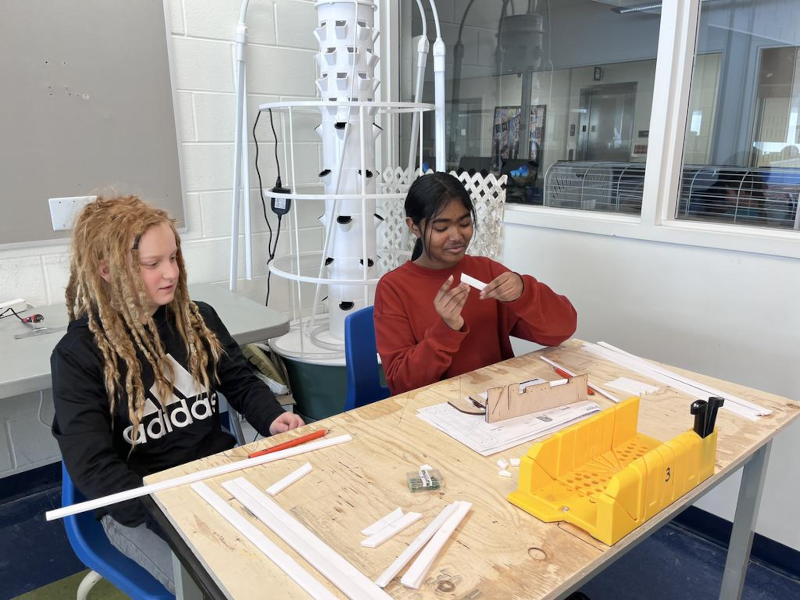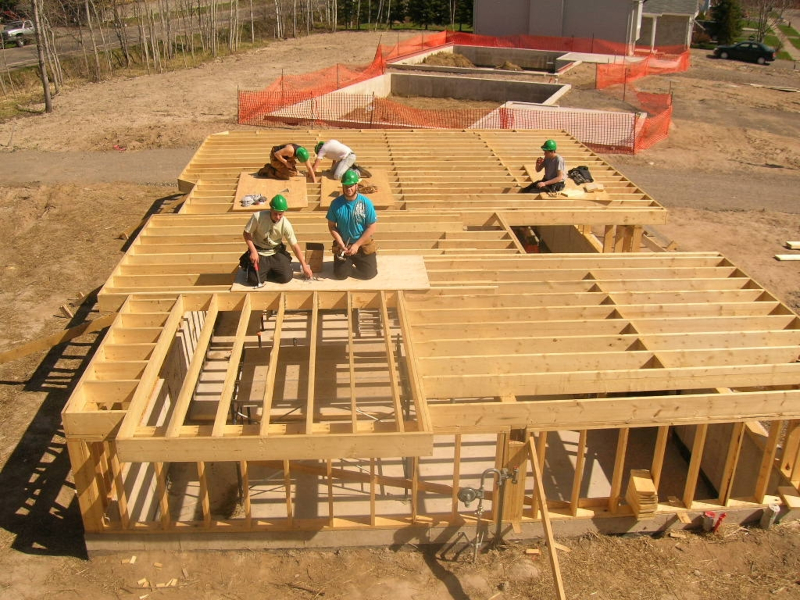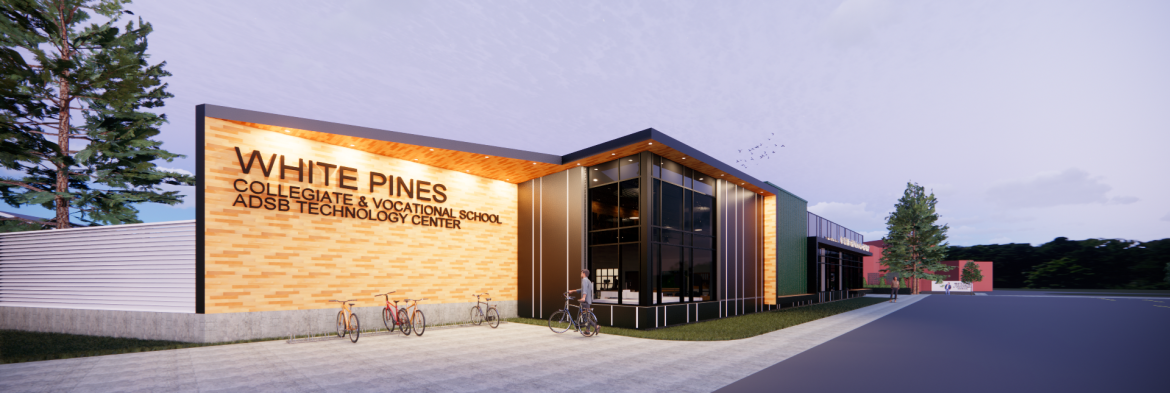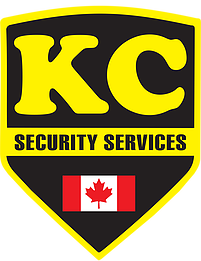Algoma District School Board
Building Educational Bridges to the Future
Unveiling innovative educational initiatives to create a thriving, inclusive future for students and communities.
The Algoma District School Board (ADSB) works to exemplify educational excellence and community engagement. With a mission deeply rooted in the holistic development of students, ADSB prides itself on guiding young minds toward becoming confident learners and caring citizens. Lucia Reece, the Director of Education, eloquently shares the foundational beliefs that propel the school district forward, painting a vivid picture of an educational journey deeply intertwined with community values and continuous improvement.
“Our mission statement—confident learners and caring citizens—epitomizes the essence of our educational approach,” Reece begins, her voice brimming with pride. She outlines a vision where students are not merely academic achievers but also individuals of good character, ready to contribute positively to society. According to Reece, this dual focus is the cornerstone upon which the Algoma District School Board builds its educational edifice.
Reece delves into the core values that underpin every aspect of the board’s operations. “We see ourselves as a learning community committed to continuous improvement,” she states, emphasizing the strategic alignment of their actions with their mission, vision, and values. The board’s dedication to achievement, well-being, and equity is not just a statement but a lived experience for students, staff, and the community alike.
Pioneering STEAM and STEM Education
In an era where technology and skilled trades are becoming increasingly crucial to both local and global economies, the Algoma District School Board has not only recognized this shift but has actively embraced it. Joe Santa Maria, the Associate Director of Corporate Services and Operations, sheds light on how the board is responding to these evolving educational needs, particularly emphasizing the integration of STEAM (Science, Technology, Engineering, Arts, and Mathematics) into their curriculum. He emphasizes the focused and dedicated work of the Board’s program teams whose tireless implementation brings new ideas to reality.
The Algoma District School Board proudly celebrates that they have a pathway for every student. Santa Maria shares one recent example, noting “We’ve established a trades trailer concept,” detailing an innovative program that introduces the functions of trades to students in elementary grades. This initiative has already visited around 20 schools and aims to spark interest in young learners, setting a foundation for their future educational and career paths.
Santa Maria’s sentiments show how recent global changes, notably the COVID-19 pandemic, have influenced the district’s focus. He confirms that there has indeed been a heightened emphasis on adapting to the rapidly shifting economic landscape by preparing students for the demands of the future workforce. He further highlights a flagship project at White Pines (CVS) Secondary School, where they create spaces for students to explore and grow their skills in technology and trades. “This exciting project involves local and national partners,” Santa Maria notes, pointing out the collaborative effort to redefine and destigmatize trades and technology education.
Further getting into the specifics of this project, Santa Maria explains that the technology center is not a standalone facility but is integrated within the high school, with the aim of promoting a seamless educational experience. He proudly mentions a partnership with the Holmes Group, through Sal Dan Developments, led by renowned contractor Mike Holmes and his children, Mike Junior and Sherry. “Having the Holmes Group, as well as IDEA Architects, national and local partners, and contractors and subcontractors involved, brings invaluable insight into what the future of trades and technology education could look like,” Santa Maria reflects, emphasizing the strategic meetings with one of the executive members of the Holmes Group to shape the project’s direction.

Elevating Core Academics Through Innovative Initiatives
The Algoma District School Board is also revisiting and revitalizing its approach to core academic skills, particularly in literacy and numeracy. Reece discusses the renewed focus and initiatives to strengthen these foundational areas, which are crucial for students’ success.
“Our province has tried to refocus all school boards back onto literacy and numeracy,” she states, indicating a shift towards implementing research-based changes in literacy programs. This period represents an exciting evolution in literacy education, with the board reviewing current methodologies, and where necessary, adopting new, innovative, evidence-based approaches.
In mathematics, the emphasis is on establishing strong connections to STEAM disciplines and the trades, underscoring the importance of math in various fields. Reece highlights the focus on authentic tasks and transferable problem-solving skills across different areas, including the trades. “You can’t build something if you don’t know how to measure a room,” Reece points out, illustrating the practical application of math skills in real-world scenarios.
Transitioning to opportunities for older students, Reece elaborates on the cooperative education (co-op) placements and apprenticeship programs available through partnerships with community organizations. These programs allow students to gain hands-on experience in their fields of interest, with some even beginning their apprenticeships or securing employment. “We have several community partners who support our students in co-op placements,” Reece says, emphasizing the diversity of sectors and organizations involved.
Enhancing Language Proficiency and Infrastructure Development
The Algoma District School Board is advancing STEM and trade education, language proficiency, and infrastructure revitalization, illustrating its comprehensive approach to educational excellence and community service.
Reece elucidates on the Ontario Virtual DELF Center’s significant role in bolstering French language education across the province. Since 2019, on behalf of the Ontario Ministry of Education, the board has managed this center, facilitating the Diplome d’études en langue française (DELF), which assesses non-native speakers’ French proficiency. This initiative aligns with the Common European Framework of Reference for languages, ensuring students’ language skills are recognized internationally. “Our French immersion program is a program of choice, and we believe students should have an opportunity to showcase the abilities they’ve developed,” Reece notes, highlighting the DELF’s role in providing an esteemed validation of students’ French language proficiency.
Turning towards infrastructure development, Reece shares a compelling narrative of how the board seized an opportunity to repurpose and enhance community assets. Faced with the potential closure of a city library due to financial constraints, the board envisioned a synergistic proposal to save the library and co-locate it with a French immersion school and board facilities, creating a hub of educational and community activity.
The project repurposed a former secondary school into two modern structures, significantly reducing the library’s operational costs while tripling its space. “What better synergy to have a school and to have a library inside or as a neighbor,” Reece reflects on the initiative’s inception. This collaboration established a prominent community resource with an archive room showcasing historical artifacts, enhancing literacy and learning opportunities for students and families.
Fostering Diversity and Innovation Through Strategic Partnerships
Leading the way in integrating diverse cultural perspectives and innovative educational methods, the Algoma District School Board excels through its partnerships with Indigenous communities and higher education institutions.
Reece elaborates on the breadth of these partnerships, “We have nine First Nation partners under tuition agreements, engagements with Métis community councils, tribal councils, and a unique partnership with the Indigenous Friendship Center.” This collaborative framework offers alternative educational pathways and embeds Indigenous learning methods into the curriculum, ensuring a holistic and inclusive educational experience.
“Our work with the Lassonde School of Engineering at York University involved a pilot project that was a hit among students,” Reece adds, highlighting a creative fusion of traditional education with modern engineering challenges. This initiative reflects the board’s commitment to preparing students for the complexities of the future job market.
Santa Maria stresses the importance of these partnerships in the broader context of education and community engagement. “About 10% of our student population are supported under an Education Services Agreement with a First Nations community, which motivates us to take actionable steps towards truth and reconciliation,” underscoring the role of Indigenous education in fostering a more inclusive and understanding society.
The board’s initiative to introduce self-identification for students and staff is another critical step toward inclusivity. “Our most recent data shows about 16% of our student population have self-identified as First Nation, Métis or Inuit,” Reece points out, highlighting the board’s proactive approach to acknowledging and celebrating diversity within its community.

Prioritizing Safety and Mental Health in Education
Ensuring a safe and supportive student environment is a cornerstone of the Algoma District School Board’s mission. The board has implemented a comprehensive safety and mental health strategy that underscores its commitment to fostering a secure and nurturing space for learning.
Santa Maria elaborates on the critical importance of safety within the district, emphasizing strategic collaborations with unions and staff to advance security measures. “Very important to everything we do every day, is ensuring the safety of staff and students in our schools and buildings” he stresses, underscoring the significance of partnerships with law enforcement and partner agencies for creating a secure environment. “Having that relationship to liaison between school and agencies is always key,” he notes, highlighting the essential role of building strong partnerships between schools and the individuals tasked with keeping the community safe.
The board employs a mix of personnel and technology to enhance security further. “We have security contracts with security personnel and we also utilize technology, such as video surveillance,” Santa Maria details, showcasing the layered approach to maintaining safety across the district. These strategies foster a welcoming atmosphere in schools and worksites.
Addressing mental health, the board has established a robust framework to support students’ emotional well-being. “We are very proud of our Special Education and Mental Health teams, and the work of our joint health and safety committee, which represents all worker groups in the Board” Santa Maria asserts, pointing to the structured oversight of safety and emergency preparedness within schools. Counselors play a pivotal role across the district, offering accessible support to meet students’ needs. “School counselors represent all of our areas and districts…any students that need support can tap into that support,” he adds, underscoring the availability of professional guidance.
Goals and Aspirations for Algoma District School Board
Passionately committed to enhancing its educational landscape despite various challenges and barriers, the leadership team at the Algoma District School Board has a clear vision for capital projects and innovative educational initiatives. This dedication aims to transform how education benefits the community and its students.
Jennifer Sarlo, Chair of the Algoma District School Board, expresses a mixture of determination and frustration when discussing the future goals for the district. “We have plans and vision for our capital projects,” she starts, pointing out the challenges faced due to geographical and bureaucratic hurdles. She mentions the prolonged process of getting capital projects approved. “We’ve been frustrated by the costs that have escalated extraordinarily,” she adds, highlighting the financial implications of such delays, while expressing hope that the process will be streamlined.
Sarlo also touches on the constraints imposed by a moratorium on accommodation reviews, explaining how it hampers the board’s ability to optimize its educational facilities. “We feel as a board that we get hamstrung in our plans,” she shares, advocating for the right to reconfigure the district’s resources more effectively.
Echoing Sarlo’s call for efficiency, Reece advocates for prioritizing and fast-tracking projects that harness educational-community synergies. She dreams big with visionary “sky dreams,” like installing a greenhouse in every school to combat food insecurity and blend life skills into education, partnering with local agencies such as Harvest Algoma. Another goal is to enhance the Trade and Technology Center as a hub for students to engage in real-world projects. Reece imagines students actively participating in their communities, from working on electric cars to building small homes to address homelessness, embodying the board’s innovative spirit and commitment to practical, impactful education.
Reece concludes by positioning education as the cornerstone of community development, both socially and economically. “Public education is a key economic driver in every community,” she states, advocating for a broader recognition of education’s role in preparing students to be contributing members of society. Inspired by models like Finland, Reece envisions a future where the Algoma District School Board educates and elevates the communities it serves.
AT A GLANCE
Algoma District School Board
What: A forward-thinking school board dedicated to providing high-quality education and fostering community partnerships to enhance student learning and safety.
Where: Ontario, Canada
Website: https://www.adsb.on.ca/
PREFERRED VENDORS
Jobst Brothers Construction – NICK@JOBSTBROTHERS.COM
Community Living Algoma – https://communitylivingalgoma.org/
For 70 years, Community Living Algoma’s focus has been consistent: supporting people with developmental disabilities in living their best lives. We advocate and educate to ensure that they are afforded all rights and choices and that they are welcomed, respected and valued in their community. This social capital and community engagement is critical to people’s health and wellness and forms the basis of our Mission Statement.
Today, we provide support to over 900 people in the District of Algoma. Our head office is in Sault Ste. Marie with satellite sites in Wawa, Hornepayne and Elliot Lake.
SubSpace Communications Inc. – www.subspace.ca
With three decades of expertise, SubSpace Communication, excels in providing premium IT Solutions. Our team is dedicated to delivering outstanding service, backed by extensive knowledge, exceptional skills, and substantial experience in various areas such as networking, VoIP, video conferencing, Cat6 & fiber-optic cabling. Our professionals hold certifications from industry leaders including Panduit, Meraki, Verkada, Grandstream, and Ubiquiti, further solidifying our commitment to excellence.
For additional information, our web site is: www.subspace.ca











